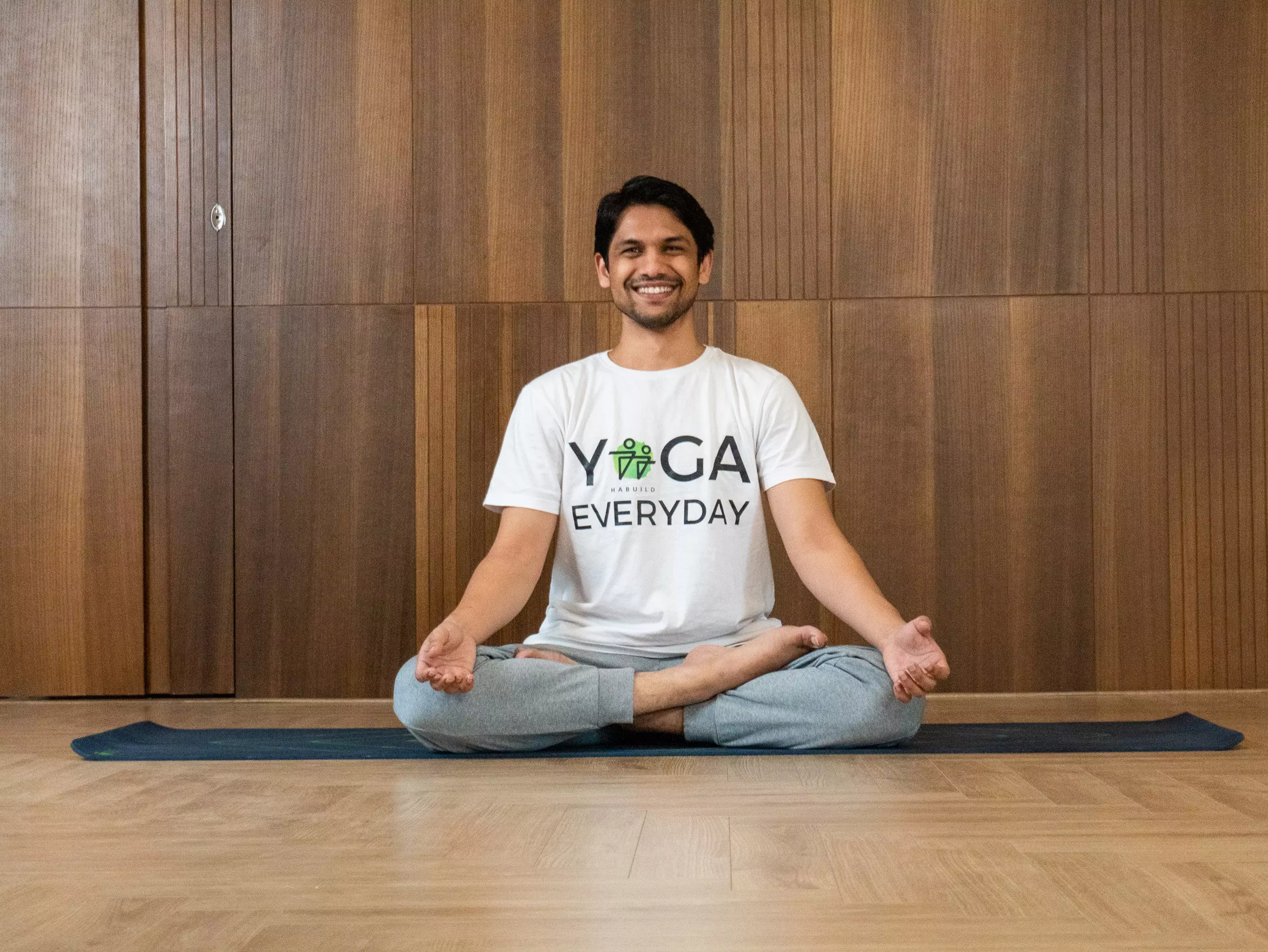Consistency and discipline are key to fitness: Saurabh Bothra
I had asthma, but after 30-40 days of practice, I didn’t need my pump. This experience sparked a passion for yoga, and I started teaching it to my juniors, finding joy in sharing its benefits, says certified yoga trainer and Habuild founder Saurabh Bothra

In an exclusive conversation with Deccan Chronicle, Saurabh Bothra, Co-Founder of Habuild, shares his inspiring journey from being an IITian to a certified yoga trainer. Discover how he is revolutionising yoga practice with his startup Habuild.
What inspired you to transition from being an IITian to a yoga instructor?
As an IITian, my journey to becoming a yoga instructor was unexpected. I randomly attended a yoga program in college, which taught yoga, meditation, and breathing, and it transformed my life. I had asthma, but after 30-40 days of practice, I didn’t need my pump. This experience sparked a passion for yoga, and I started teaching it to my juniors, finding joy in sharing its benefits. Interestingly, people think I miss being an engineer, but I am doing more engineering than ever, as our yoga platform requires tremendous technical expertise to manage. With 82 lakh signups for our free programs, 10 lakh people doing sessions daily, and 3.5 lakh new joins daily, it’s clear that yoga has become a significant part of my life, and I am grateful for the opportunity to share it with others.
Why did you name your startup Habuild?
I was travelling, inspiring people to practice yoga, but realised awareness wasn’t the issue— consistency was. I decided to promote consistency, drawing from Patanjali Yoga Sutras’ concept of “Yoga Anushasanam” (discipline of yoga). This led to “Habuild” building a habit. We make yoga simple and accessible, incorporating principles of habit-building on WhatsApp. No technical jargon or complicated apps— just click a link and start your yoga session. We have made it so simple that we have broken four world records. Our classes are designed for everyone, from a 3-year-old to a 91-year-old.
Do you have a set of asanas for everyday that continues through the week and how does it work?
We incorporate variability to build habits, so while people know the routine, what happens each day is a mystery. We focus on one habit at a time, starting with exercise, and the rest of the things fall in place. We have a one habit challenge where everyone picks one habit, like yoga in January, drinking enough water in February, and better breakfast in March, aiming to build 12 habits in a year.
What’s the concept behind your 21-day courses?
I wanted to teach for free, but realised people didn’t commit without paying something. So, I started charging a nominal fee. To explain habit-building, I offer free 21-day yoga challenges, twice a year, in January and June. This helps people experience benefits and understand consistency. We update them on building consistency during these 21 days, and around 50% continue after that.
If you were to name 3 simple asanas to do every day, which ones would you choose?
I wouldn’t recommend specific asanas. Exercise isn’t transactional. It’s a comprehensive model. Yoga is only 12.5% asanas, as it has 8 limbs: yama (abstinences), niyama (observances), asana (yoga postures), pranayama (breath control), pratyahara (withdrawal of the senses), dharana (concentration), dhyana (meditation) and samadhi (absorption). Our motto is “Get up every day and do something”—consistency and discipline are key.
What’s the importance of breathing exercises in yoga, and how do they benefit the body?
Most people breathe incorrectly, with 80% breathing wrong. Common mistakes include breathing from the mouth and chest, rather than the stomach. Over breathing is also a problem. When stressed, we breathe fast, and when relaxed, we breathe slowly. So, intentionally breathing less and slower is key. In Pranayama, exercises like Nadi Shodhana help balance, while Brahmari increases nitric oxide production, which is beneficial for overall health.
What’s next for Habuild, and how do you plan to encourage daily yoga practice?
I stopped planning after March 2022. My co-founder set a goal to reach 5000 participants in a year, but we achieved it in just three months. Now, we don’t plan; we just execute and go with the flow. Our growth is driven by word of mouth, with people sharing their positive experiences and encouraging others to join.
What’s your advice for people to stay healthy?
I would just say that building a habit is easy—be patient, goal-oriented, and focus on consistency. Shift your goal from “I want to lose weight” to “how many days can I practice?” and it will solve the problem. Just a reminder: be careful of seeking quick results.

